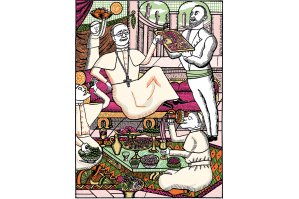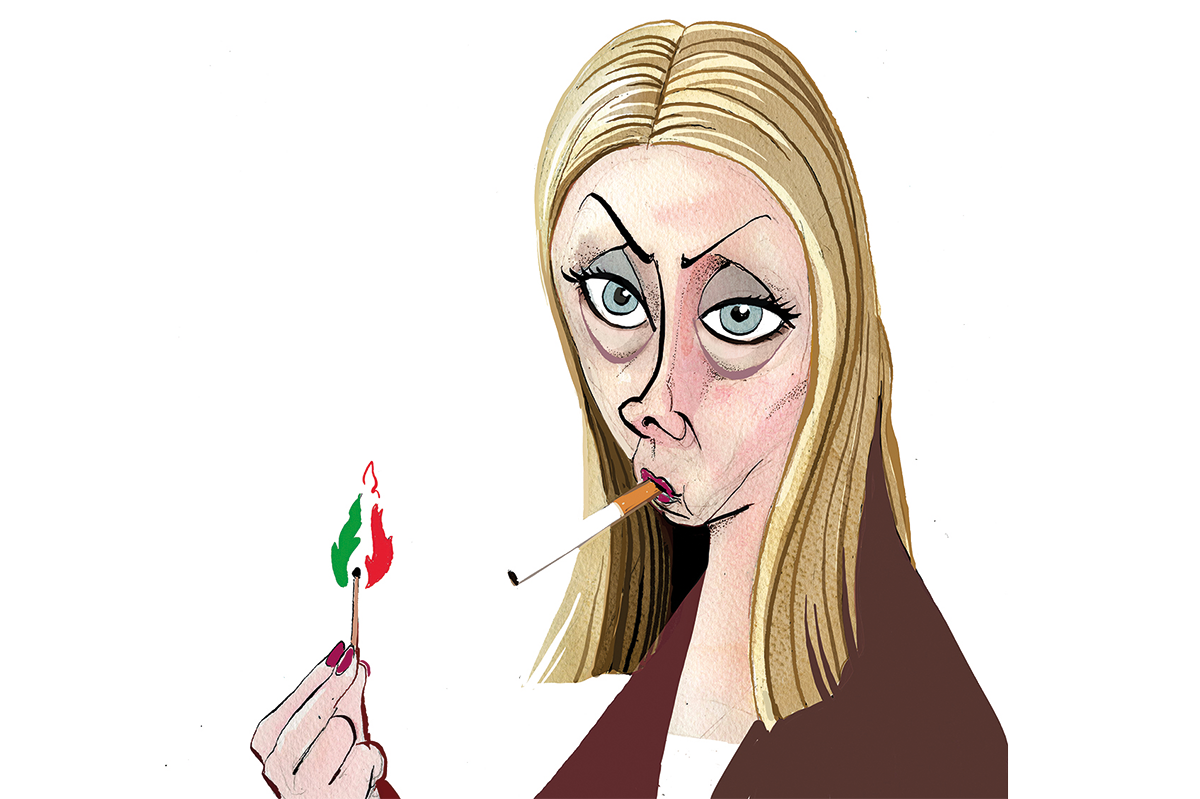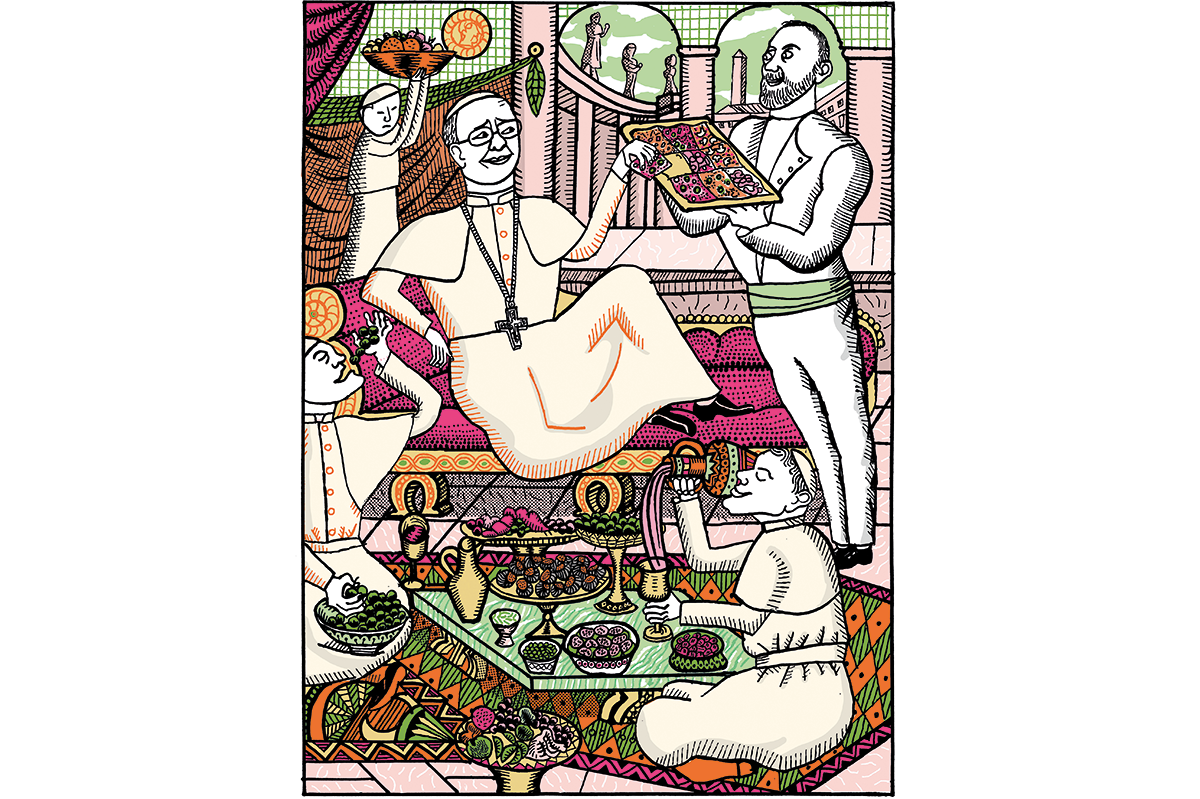Rudy Guede was released from prison this past December. If that name doesn’t ring a bell, it’s because for a long time, the brutal murder he was sentenced for was blamed on Amanda Knox. The 2007 burglary gone wrong made worldwide headlines for years. Knox, a photogenic American student studying abroad in Perugia, and her nerdy Italian boyfriend, Raffaele Sollecito, were found guilty, twice, of murdering Knox’s British roommate Meredith Kercher in what the Italian police called a ‘drug-fueled sex game gone awry’.
Everyone, save Knox and those close to her, was shocked to learn four years later that there was no slasher sex game, and, more importantly, there was absolutely no DNA linking Knox and Sollecito to the crime scene that imprisoned them for years.
‘It was just an interesting story,’ Knox said when she discussed her experience on her friend Jason Flom’s podcast, Wrongful Conviction. ‘And I think that’s what’s most scary that I’ve learned about the criminal justice system… Often enough what compels is not the facts; what compels is the story…what stimulates our most base instincts towards other people.’
As Knox walks listeners through the day of her arrest, it’s apparent she is still upset. Who wouldn’t be? When the police brought her to prison, she had no clue she was being arrested; she thought she was a witness. On top of everything, ‘My mom didn’t like the way I was writing letters [from prison]. She thought I was depressed.’
She was in prison for two years before her conviction and was acquitted two years after it, before being convicted again and re-acquitted. Despite the fact that the only DNA at the crime scene belonged to the victim Kercher and to Guede — a known burglar in the area — the police had eyed Knox from the start because of her ‘strange behavior’. Mishandling of evidence led to a small amount of Kercher’s DNA on a kitchen knife belonging to Sollecito. Knox described the police who came to the crime scene as ‘kids pretending to be’ forensic officers, ‘passing around evidence like candy’. The Perugia police, she says, ‘wanted to prove themselves to the world’. They were ‘very proud’, despite lacking the resources or training to solve the crime.
The podcast focuses on how Knox was wrongfully convicted, but that leads to a larger discussion more about humanity than forensic failures. ‘We’re flawed human beings who should remember that when we’re drawing conclusions about people,’ Knox says slowly, ‘and we shouldn’t rely so heavily on initial impressions because those don’t tell us any relevant information.’
Flom’s podcast demonstrates how cases similar to Knox’s aren’t just found in underfunded Italian police stations, but also throughout the United States. In her TV series, The Scarlet Letter Reports, Knox uses her experience to try to bring to light wrongful convictions and advocate for criminal justice reform. She also dives into sexism in the media, and interviews other women who have gained infamy through no fault of their own. Bad luck for her, the year Knox was incarcerated the tabloid press was still the tabloid press: ruthless and willing to use any occasion to engage in a spot of old-fashioned misogyny. It was 2007: from Britney Spears’s bald head to Lindsay Lohan’s ‘fire crotch’, people couldn’t get enough trashy news trashing female figures.
Once the Perugian police speculated to a tabloid journalist about sex games, the press acted like Shirley Jackson’s townspeople on lottery day, with Knox as their target. She had no access to the news in prison and was shocked to find out from her mother what stories had come out. There were newscasters speculating whether she owned a vibrator, while headlines called her a ‘she-devil’ and a ‘heartless manipulator’. Kercher’s murder, in which she was raped, beaten and stabbed 47 times with her throat slashed, was reduced to ‘girl-on-girl crime’.
Even after Knox’s release and exoneration, the vitriol didn’t stop. She was asked if she was ‘into deviant sex’, among other salacious questions not worth repeating. Knox still cannot post photos of herself drinking and smiling, getting married or being with her friends and family without getting smacked on the wrist by the press.
It may seem strange to people that now, despite still living under a cloud of doubt, Knox also has a true crime podcast. In The Truth About True Crime, Knox evaluates the ‘preppy murder’ of Jennifer Levin, which has resonances with her own case. She said the key players of each crime were ‘crafting an alternative narrative to explain the evidence’. ‘And as those stories clashed with each other in the courtroom,’ Knox says, ‘they were amplified and distorted in the media, forcing jurors to choose between two very different narratives.’
Knox has learned how to live with the fact that she will always be associated with the image of a femme fatale who hypnotized men into killing her roommate. In spite of that, she has handled herself with eloquence and grace. She shines a light on the extreme wrongs that anyone walking our unfair world may have to endure, but she also reminds us not to let those wrongs become our identities.
Meredith Kercher’s murder ‘is not the thing that defines me,’ she tells Flom. ‘The thing that defines me is how I reacted to it.’
This article was originally published in The Spectator’s May 2021 World edition.

























